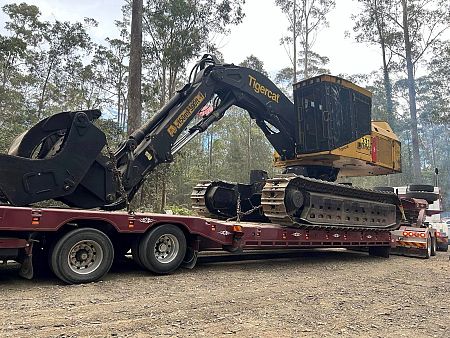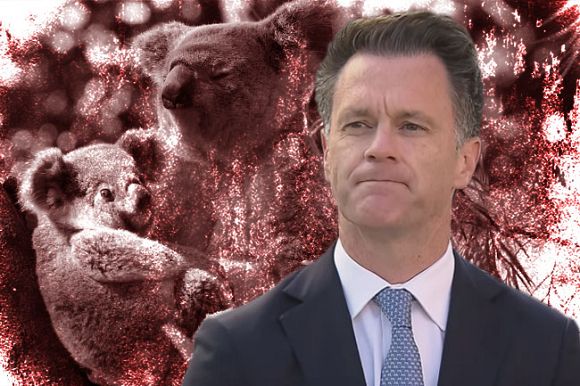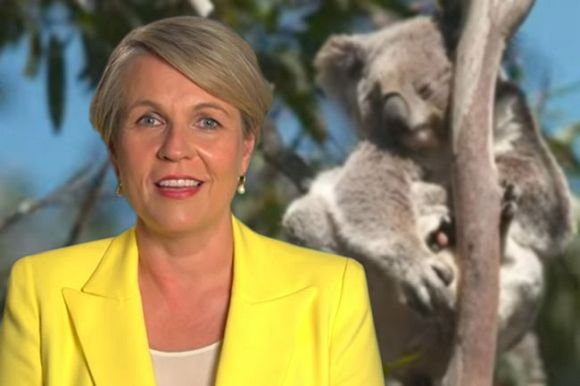Governments at both state and federal levels are continuing to ignore the environmental devastation and biodiversity loss caused by logging, writes Sue Arnold.
ENVIRONMENTAL VANDALISM is the only way to describe the industrial logging of native forests in New South Wales and Tasmania. The extent of damage is enough to make a grown man or woman weep as old growth forest, ancient ferns and habitat trees are clear felled leaving a scene of utter devastation.
The sheer size of the trucks, bulldozers and equipment being brought into the forests must be terrifying for forest fauna. As their trees are knocked down, noise and dust fill the air creating hellish scenes. Animals have no place to go, their shelter and prey gone.
Recent research demonstrates that more than half of NSW forests and woodlands that existed before European invasion are now gone and more than a third of what’s left is degraded.
Despite the loss of 29 million hectares of forest since 1750, an area larger than New Zealand, continued logging since 2000 has affected about 244 threatened species.

Professor James Watson, one of the study’s authors, says many forest-dependent species were now being sucked into “an extinction vortex” because of logging.
With major bushfires predicted for Australia’s summer months, NSW forests are tinder dry, thinned out by logging, creating an environment for wildfires to create awesome damage.
The Minns Government has created no refuges, the promised Great Koala National Park, a focus of current industrial logging, will be a desert for koalas and significant biodiversity.
As more and more compartments in the proposed park are logged or scheduled to be logged, the public is asking why the Government refuses to listen to a tsunami of concerns. As Europe, Asia, the U.S. and Canada burn, the hypocrisy of Labor’s federal and state environmental policies is impossible to ignore.
Yet the Federal Environment Minister, Tanya Plibersek, continues to focus on any issue but the forests, recently announcing that she had “declared war” on feral cats with a new action plan — a direct response to a UN report. However, the Budget 2023-24 has only committed ‘$1 billion of additional funding to help ensure Australia remains free from invasive pests and diseases that would devastate exports, regional jobs and the environment’.
In the October Budget, a $134 million targeted investment in biosecurity was delivered. The CSIRO claims Australia’s close to 3,000 invasive alien species cost around $25 billion every year in losses to agriculture and management costs.
Plibersek insists feral cats are the major driver of extinctions, warning, “If we don’t act now, our native animals don’t stand a chance”.
CSIRO chief research scientist for biosecurity, Dr Andy Sheppard says of invasive alien species:
Globally, they are in the top five drivers of biodiversity loss, alongside land and sea use change, direct exploitation of organisms, climate change and pollution.
...they are the leading cause of biodiversity loss and species extinctions.
Dr Sheppard lists the makeup of alien species:
“Invasive alien species make up 6% of all alien plants; 22% of alien invertebrates; 14% of alien vertebrates; and 11% of alien microbes, posing major risks to nature and to people.”
The omission of industrial logging of native forests as a major driver of biodiversity loss can only be described as extraordinary.
Whilst feral cats are definitely a major problem, biosecurity continues to be underfunded and the most serious cause of biodiversity loss is ignored. Deforestation needs to be urgently addressed as an equally important priority.
In May, Plibersek said regional forestry agreements will be covered by upgraded federal environmental laws. So far, nothing has changed. Apparently, the urgency of dealing with these agreements doesn’t measure up to a UN report on invasive species.
The UN’s FAO reports:
‘Forest utilisation, in particular practices such as timber harvesting, extraction of non-timber products, the construction of logging and transport roads and facilities for logging camps, and the conversion of natural forest to plantations, can have direct and indirect negative impacts on the ecological functions of forests and on forest biodiversity by promoting the invasion of alien species.’
World Wildlife Fund points out more than three-quarters of the world’s documented land-based species can be found in forests. Wildfires open up forests to invasive species according to the WWF report.
The loss of forests causes increased greenhouse emissions, disruption of water cycles, increased soil erosion, loss of forest fauna and flora, extinctions, pollution and more.
Yet there’s no estimate of what forest losses cost in comparison with the damage caused by alien species. If the cost of the full extent of forest logging impacts is combined with alien species invasion, Australia is in the throes of major environmental crises that are being ignored by Labor and Liberal governments unless immediate steps are taken to stop logging in native forests.
At the state level, the forestry situation remains grim.
Although the Victorian Government had declared it would end forestry in December 2023, the date has been pushed forward to 1 January 2024. VicForests is continuing on its destructive path before the logging ban comes into force, with more than ten alpine coupes earmarked to be logged before the end of the year.
VicForests says there are no current plans to conduct timber harvesting in the area.
This is the same organisation that says:
‘On Wild Koala Day, VicForests is taking the opportunity to remind Victorians of the care it takes for the environment and its wildlife when undertaking harvesting operations.’
After two successful Supreme Court cases brought against VicForests over the destruction of gliders, their claim of the “care it takes” and undertakings not to log alpine coupes have a hollow ring.
We should not lose sight of the appalling, ongoing destruction by Liberal governments. Tasmanian Liberal Premier Jeremy Rockcliff has failed to protect the Tarkine forest in yet another example of gross political irresponsibility. This forest is Australia’s largest temperate rainforest and the second-largest temperate rainforest in the world, home to many rare and endangered species including the Tasmanian Devil and the Tasmanian Masked Owl.
Tarkine’s ancient rainforests are being flattened and clearfelled for woodchips. After logging, according to the Bob Brown Foundation, the area is burnt with a napalm-like substance that pollutes the air and releases vast quantities of greenhouse gases.
A permanent logging zone covers 30,000 hectares of Tarkine. In 2014, the Tasmanian Government introduced legislation allowing regional reserves and conservation areas covering 295,700 hectares to be logged.
The national and state lists of forest fauna facing extinction grow every day as the industry continues to operate with few restraints.
“We have politicians saying we have the best-regulated forests in the world, well frankly that’s bullshit,” says Professor David Lindenmayer, AO, Australian scientist and academic.
A growing number of Australians vehemently agree with Professor Lindenmayer.
Sue Arnold is an IA columnist and freelance investigative journalist. You can follow Sue on Twitter @koalacrisis.
Related Articles
- Politicians persist in plundering the planet for profit
- Tasmanian Liberals’ ecocide
- Mark McGowan must stand tall on future promise to protect forests
- To be real on climate, Labor must end logging of native forests
- Fines don't faze Forestry Corp's lust for logging
 This work is licensed under a Creative Commons Attribution-NonCommercial-NoDerivs 3.0 Australia License
This work is licensed under a Creative Commons Attribution-NonCommercial-NoDerivs 3.0 Australia License
Support independent journalism Subscribe to IA.















